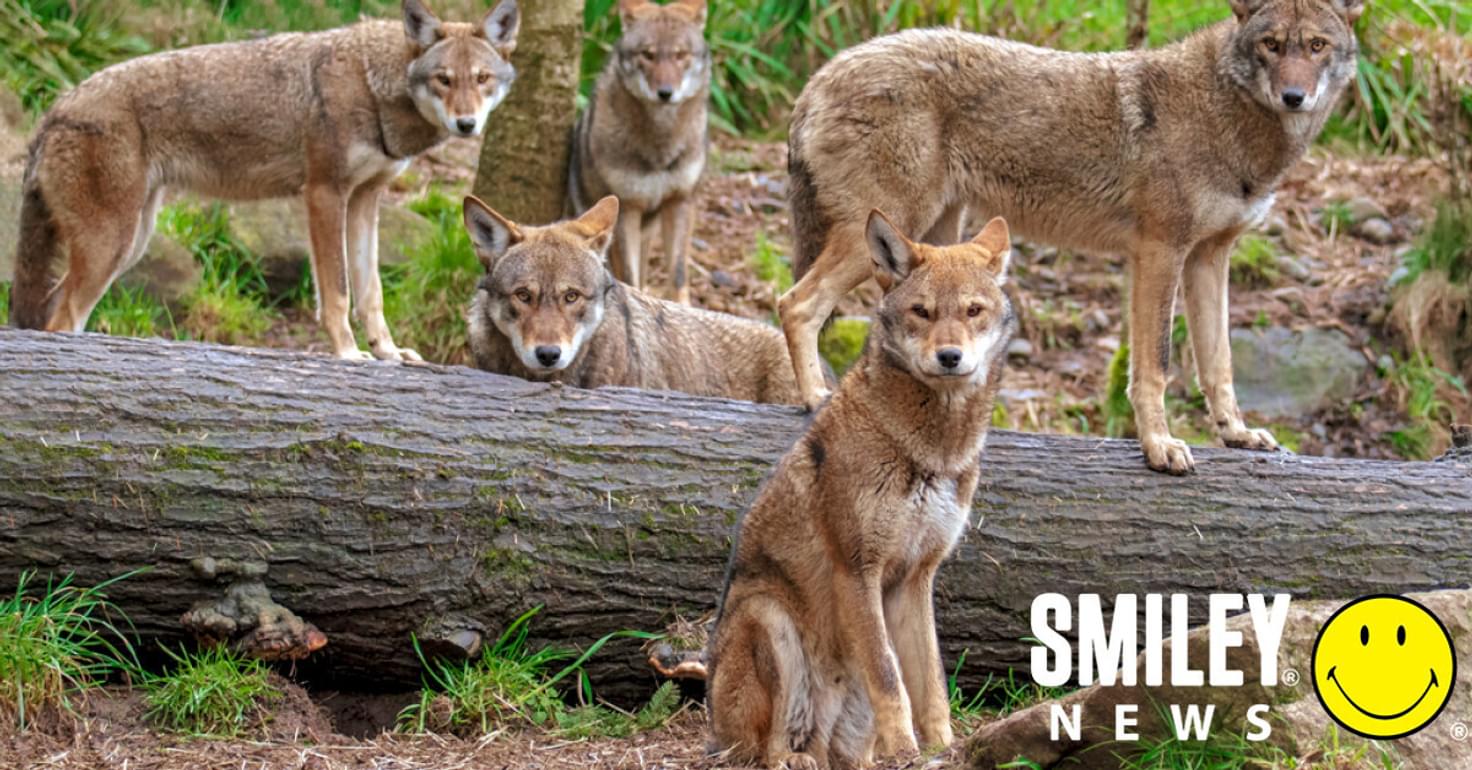
Words by Smiley Team
Until recently, there were only about 35 red wolves left roaming the wild. But for the first time in years, a litter of six pups has been born into the world to join them.
Four female and two male newborns were discovered in the Alligator River National Wildlife Refuge, the last remaining habitat for this species on the brink of extinction.
Joey Hinton, a senior research scientist at the Wolf Conservation Center has studied the animals for the past 20 years. He said: “The six newborn red wolf pups represent a 33% boost to the current population numbers plus a chance at survival for the species.”
Staff at the Red Wolf Recovery Program welcomed the pups into the world and announced the news on Facebook.
“As the sights and sounds of spring began to unfold on Alligator River NWR this April, something monumental was also unfolding on the landscape… a new litter of red wolf pups and renewed hope for survival of a species!” they posted.
[Read more positive news about initiatives supporting life on land]
As the first litter of pups born since 2018, it’s a huge call for celebration among conservationists.
“Every generation yields a new born hope for the red wolf…a cause for joy and celebration!” the organisation said.
Their birth is the result of several schemes set up to support the wolves.
Before colonisers arrived in North America, red wolves thrived across the southeast of the country. But after many years of human encroachment into the land and hunting, the species was labelled as “threatened with extinction” in 1967.
After red wolves were eventually declared extinct in the wild in 1980, conservationists embarked on a careful breeding program of wolves in captivity. Today the Red Wolf Recovery Program is designed to reintroduce those wolves into the wild, protect them and encourage them to breed.
DONATE: To protect more wildlife from hunting and other threats, donate to the World Wildlife Fund.
ADOPT: Support an animal by making regular contributions to the World Wildlife Fund.